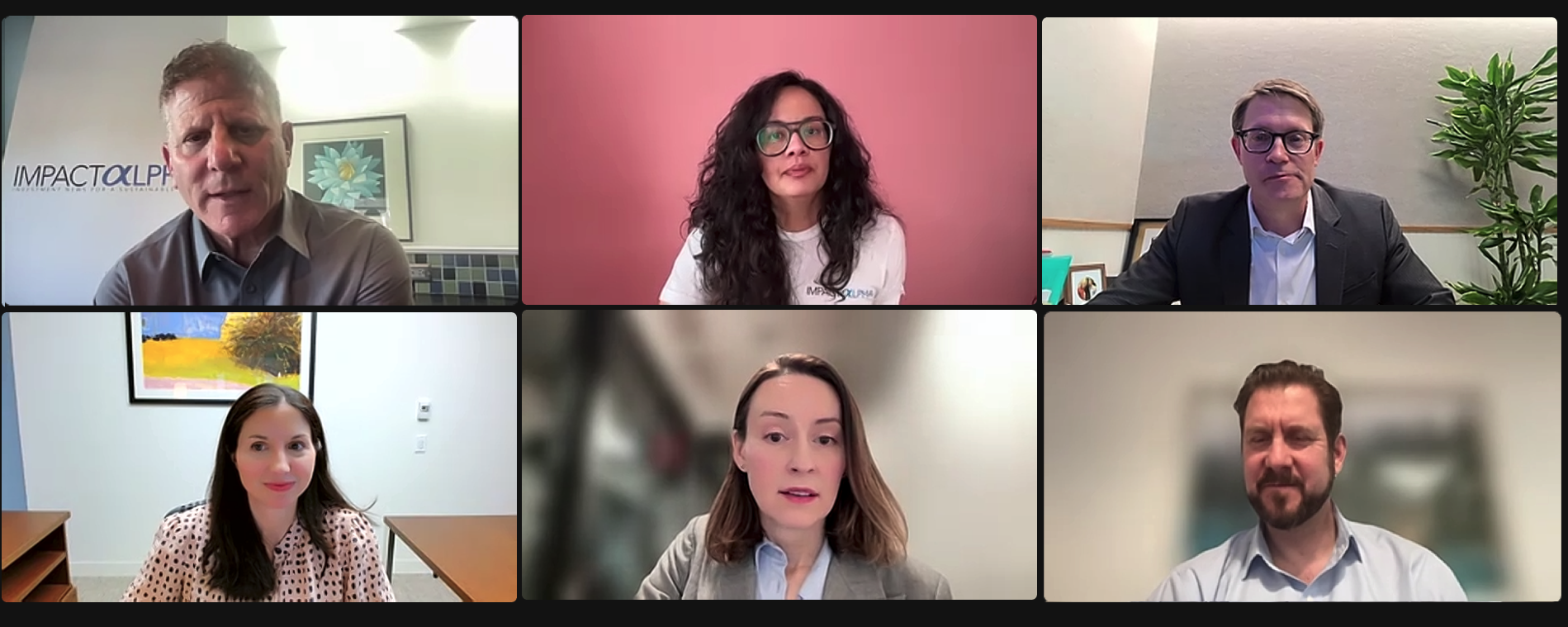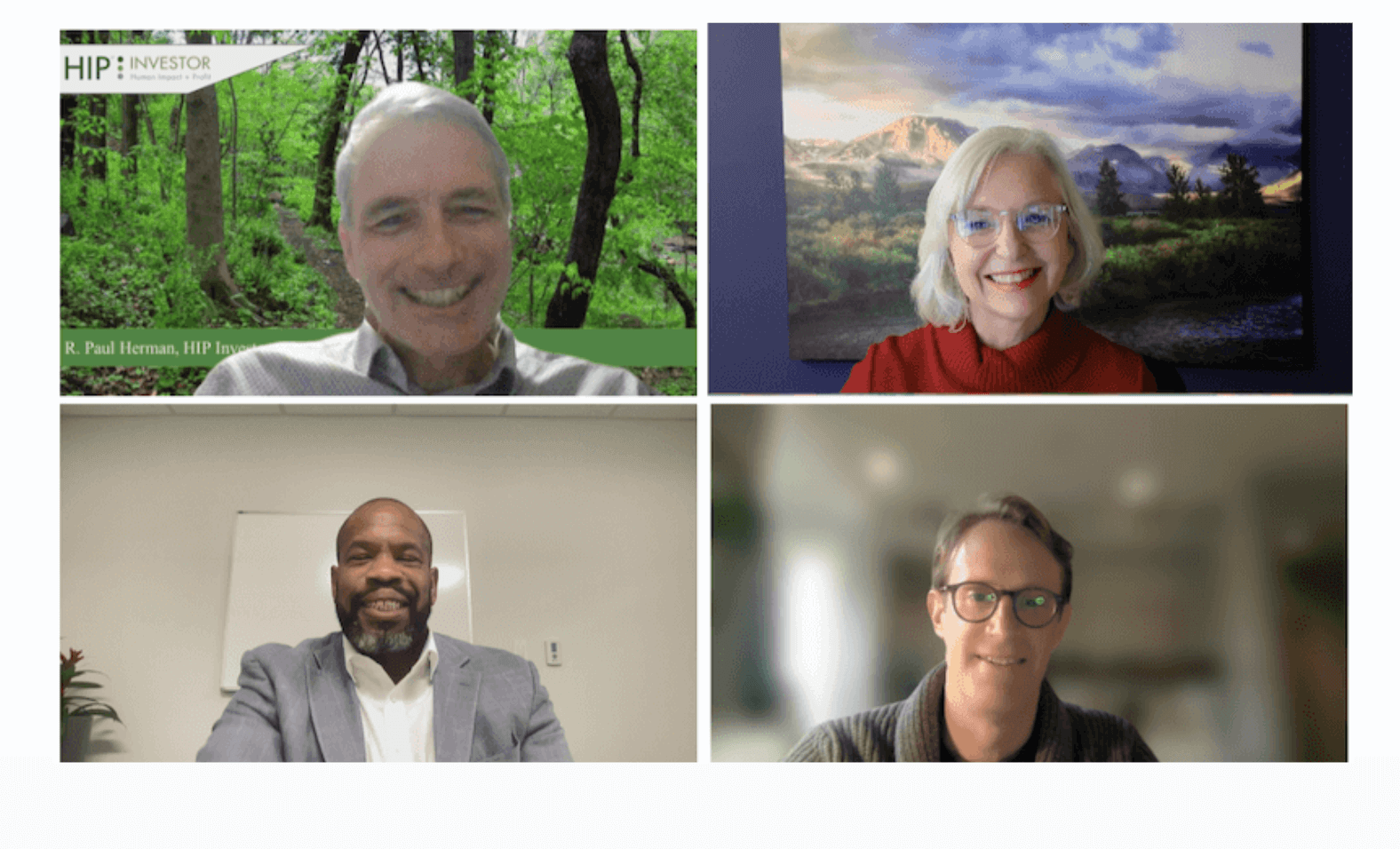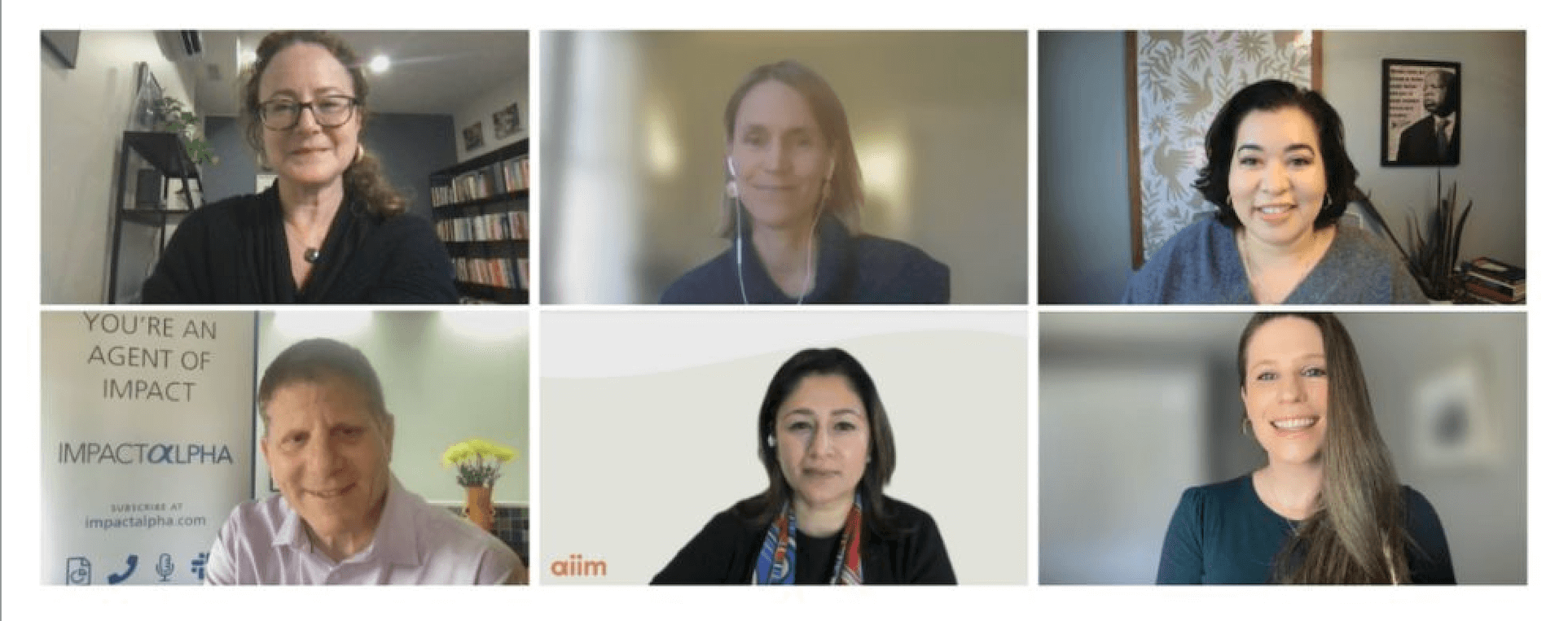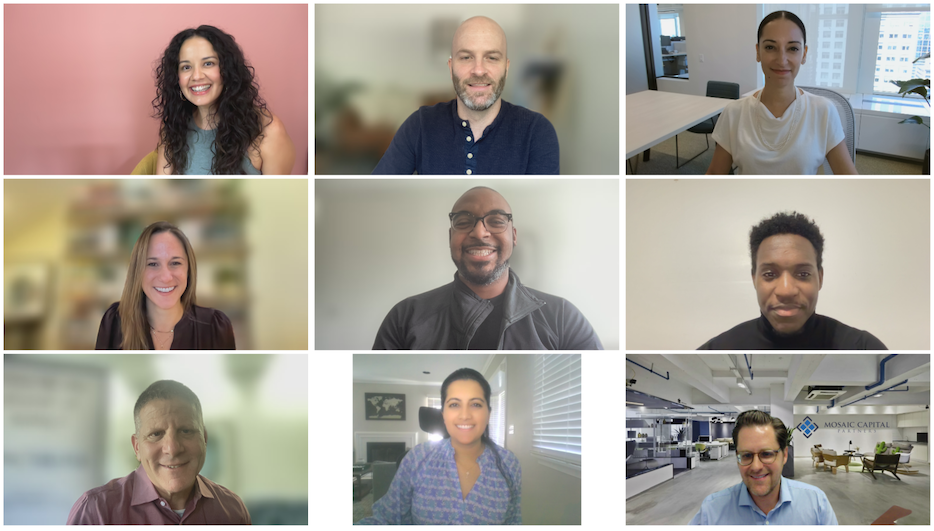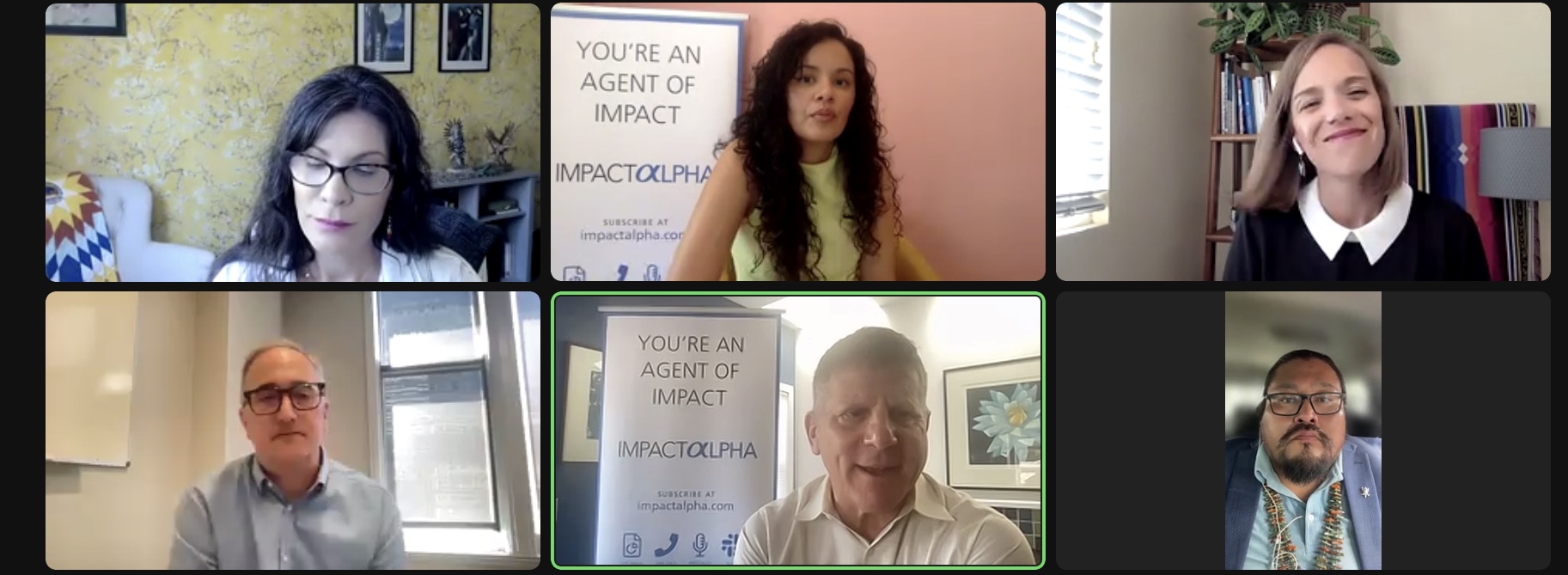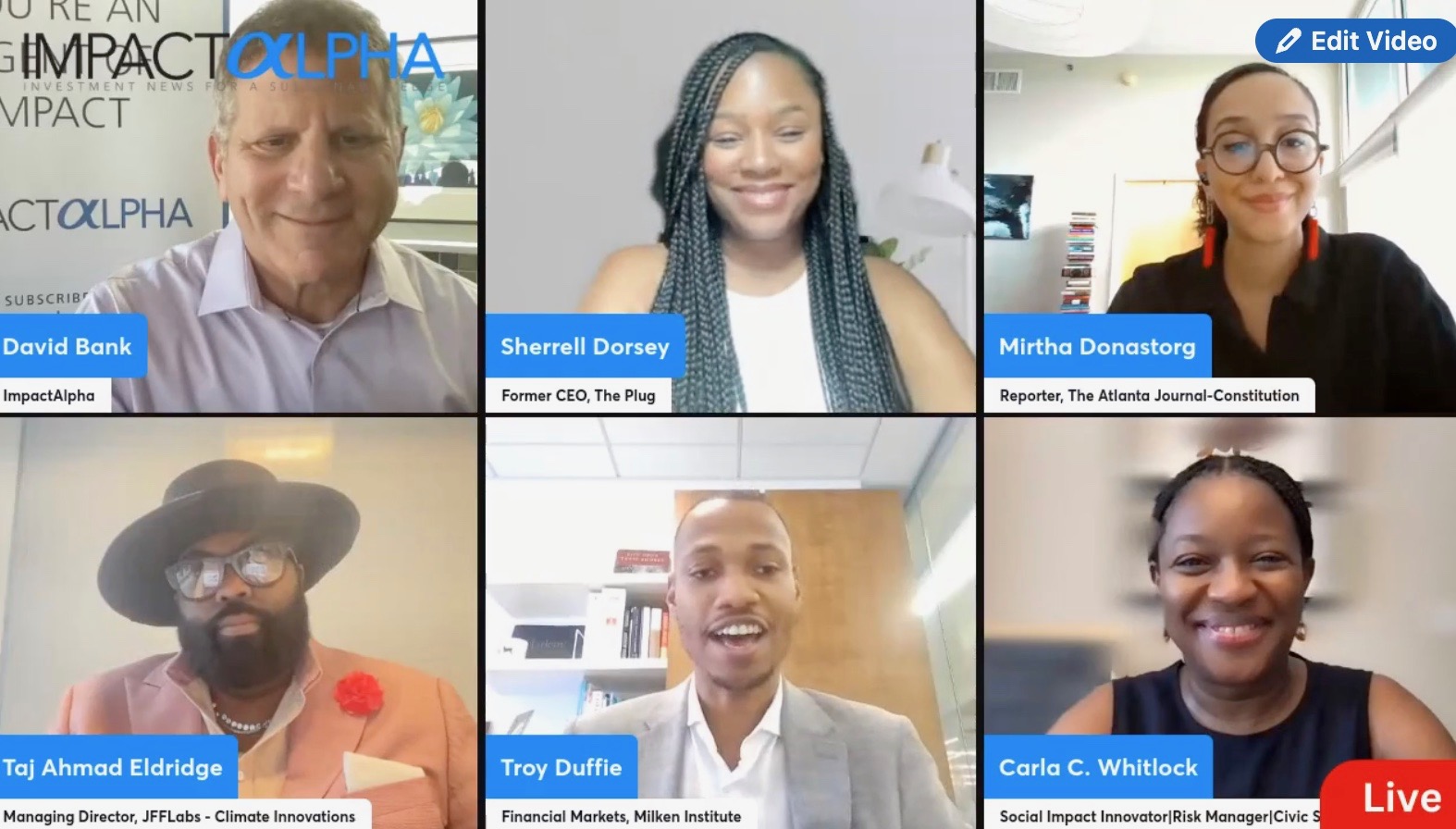ImpactAlpha, January 6 — A few of the keywords thrown around on last month’s Agents of Impact Call No. 26: accountability, electrification, institutional, reconstruction – and impact.
The Call capped off 2020 and offered Agents of Impact an opportunity to share 2021 predictions for emerging markets, catalytic capital, racial equity and justice, climate finance, ESG and much more.
Access to finance for small and growing businesses will determine the shape of the COVID recovery, both in the U.S. and around the world. In the U.S., the federal COVID-19 Emergency Relief bill directs $12 billion to community development financial institutions, or CDFIs, and minority depository institution, or MDIs. That’s in addition to a $15 billion carve-out for such lenders in the new $284 billion round of the Paycheck Protection Program for struggling small businesses (see, “U.S coronavirus relief package boosts lenders in underserved communities”).
“The new administration will try to make up for 30 years of disinvestment in one year,” predicted Calvert Impact Capital’s Beth Bafford. “We’ll see if they’re successful.”
Apis & Heritage Capital’s Todd Leverette predicts equity ownership, worker ownership to become a major tool to bridge the racial wealth gap.
“You will hear the term racial wealth being called by name by leaders from local, state, federal government — by corporate CEOs,” he said. Employee ownership models such as worker cooperatives and employee stock ownership are time-tested solutions that can both save viable small businesses and contribute to closing the racial wealth gap, wrote Leverette and his colleague Phillip Reeves (see, “Black and brown employee ownership for the post-COVID economy”).
Or, to put it another way, worker ownership becomes a major tool to bridge the racial wealth gap.
My own prediction for 2021 was that the steady and resilient returns from affordable and workforce housing will make such projects even more attractive to institutional investors and we will see institutional-ready, affordable housing funds even bigger than Turner Impact Capital’s recent $357 million fund (see, “Turner Impact Capital closes $357 million affordable workforce housing fund”).
Latresa McLawhorn Ryan of the Atlanta Wealth Building Initiative predicted the mobilization of voters for today’s runoff election in Georgia would spill over into a broader civic revival. “The same effort of mobilizing people will take hold as it relates to access to capital and addressing other barriers — including in impact investing — to ensure that it’s grounded in what’s going to be impactful in the community,” Ryan said. (see, “How Georgia’s civic mobilization is rallying local efforts to close the racial wealth gap”).
Several people called for more accountability during the call, including ImpactAlpha’s Monique Aiken and Courageous Capital Advisors’ Laurie Spengler. The Beeck Center’s Erika Davies, founder of The Racial Equity Lab, asked for greater accountability for racial equity in 2021.
“More accountability,” Davies said, “for how organizations are actually holding themselves accountable for internal progress on these issues such that it sticks.”
“Let’s make sure we’re honest and clear about who is actually receiving the capital and who is not, and push to ensure that we’re expanding not just retrenching,” added Spengler.
Drew von Glahn of The Collaborative for Frontier Finance predicted that investors and policymakers would back new mechanisms for providing capital to small and growing businesses in emerging markets (see, “Non-bank lenders need capital to finance African small businesses rejected by banks”).
“My prediction is greater leaning in by the agencies and entities within the U.S. government that can be very transformative and very catalytic with their capital in the developing markets,” von Glahn said.
Ibrahim Rashid, a public policy major at The University of Chicago predicts pay-for-success, social impact bonds and other results-based financing will become a bigger tool as cash-strapped public policymakers seek new ways to finance government projects.
There is widespread expectation that 2021 is a pivotal year for climate action, and climate finance. ImpactAlpha’s David Bank predicted “electrify everything” will be an investment rallying cry this year, “signaling the tripling of demand and the crashing of costs for electricity and spurring a network effect and network upgrade cycle on par with the telecom and dot-com boom and bubble of the 1990s.”
ImpactAlpha’s Amy Cortese is predicting a record year for climate investment, which has been stuck at around $600 billion the past few years (see, “With alarm bells ringing, investors step up for dramatic climate action in 2021 — or else”).
“I’m going to put a stake on the ground and say it’s going to hit $1 trillion in 2021,” said Cortese. That would be a big jump, but a report from the U.N.’s Intergovernmental Panel on Climate Change calculates the need for annual energy-system investment of between $1.6 and $3.8 trillion to keep global warming below 1.5 degrees Celsius.
Carbon Tracker Initiative’s Mark Campanale called for a Fossil Fuel Non-Proliferation Treaty to drive international cooperation in the transition to a low-carbon economy. Coal, oil and gas are responsible for nearly 80% of all carbon dioxide emissions since the industrial revolution. He thinks the U.S., Europe and “maybe China” will move to enact a meaningful price on carbon.
“We’re going to see the discussion of a managed decline of global fossil fuel production,” Campanale said.
Atlanta entrepreneur and investors Donray Von, who is developing a mall in an Opportunity Zone near historically Black colleges Morehouse and Spelman, said he’s having conversations with institutional investors about “diversity at scale.”
“Moving the ‘s’ in ESG from small ‘s’ to large ‘S’ — that’s the opportunity of a lifetime,” Von said on The Call. “There is a pent up demand and capital. And some people just can’t do small things… So if you want to solve a problem, make it bigger. That’s become my life mantra. I’m trying to create big problems and solve big problems.”




